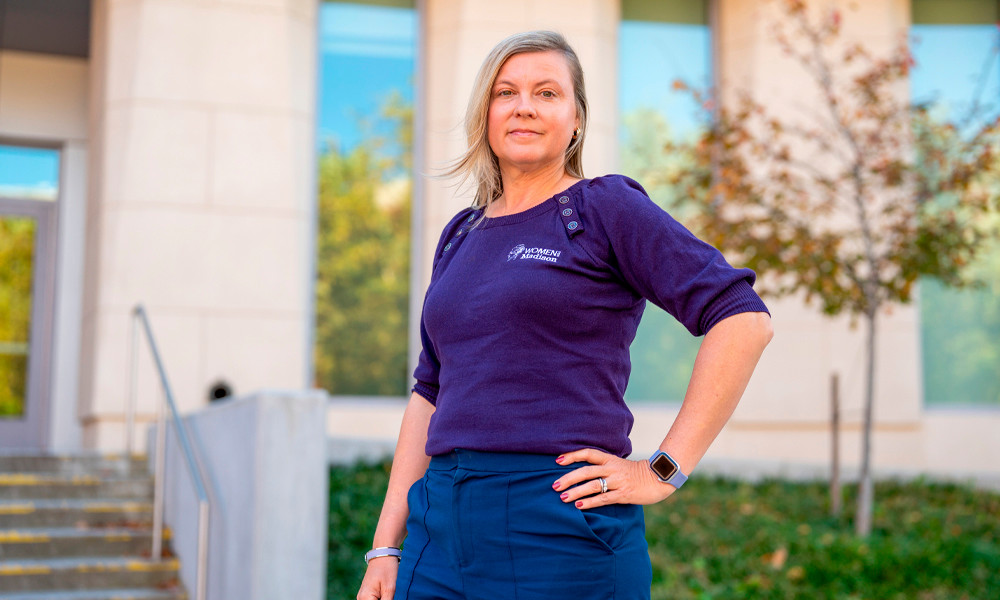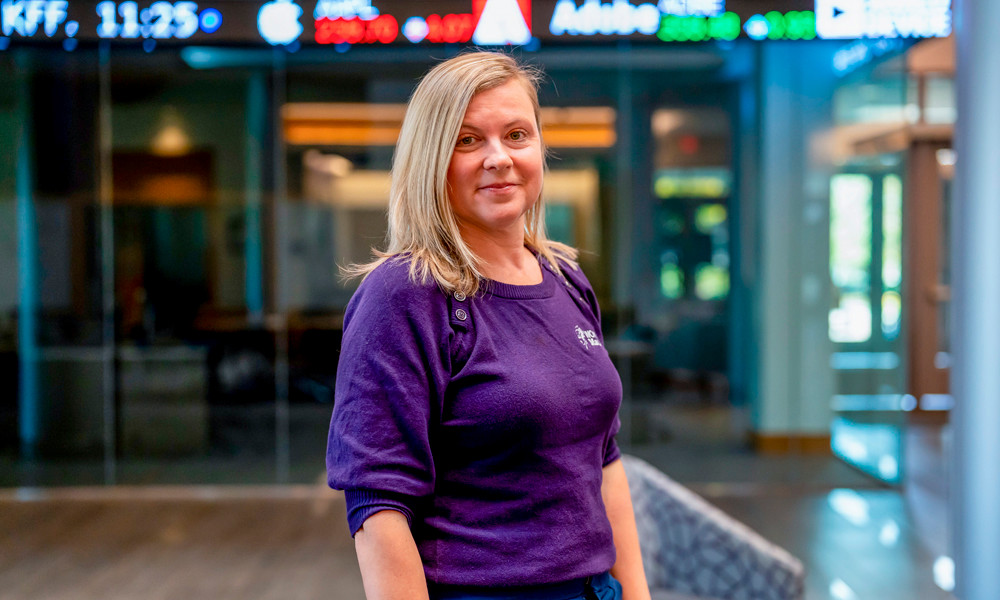Alumna oversees Virginia’s disability savings program
Featured Stories
SUMMARY: Alisa Ferguson ('00) serves as programs director for ABLEnow, which provides tax-advantaged accounts to Virginians with disabilities, allowing them to save money without losing their public benefits. The program emphasizes financial literacy and independence.
At JMU, Alisa Ferguson (’00) majored in Psychology and had planned to stay an extra year to complete a master’s degree in Psychological Sciences. But at the end of the Spring 2001 semester, she hadn’t finished her graduate thesis. “I thought, OK, what do I do next?” she said.
After getting married that year and settling in Richmond, Virginia, with her husband, Bill, Ferguson began exploring her career options. She circled back to her minor in Criminal Justice. “I thought, you know what? That legal stuff was really interesting.”
Ferguson accepted a job as a receptionist at a small law firm in Richmond specializing in estate planning. Within a few months, she was asked to serve as its paralegal. “I just did the job with zero [legal] education or background — and they never fired me,” she said.
The experience cemented her desire to go to law school. After graduating from the University of Richmond in 2008, Ferguson worked for another boutique, estate-planning firm for a few years before getting her foot in the door as a temporary contract attorney at what was then called the Virginia College Savings Plan.
Once again, Ferguson lacked experience, but once again, she figured it out — so much so that when a full-time attorney position opened up in 2011, she applied and was offered the job.
The independent state agency, now known as Commonwealth Savers, was among the first in the nation to offer tax-advantaged accounts to Virginians with disabilities, allowing them to save money without losing their public benefits. Virginia's ABLEnow program grew out of the federal Stephen Beck, Jr. Achieving a Better Life Experience (ABLE) Act of 2014. It emphasizes financial literacy and independence.

|
Following the passage of the ABLE Act, Ferguson supported the launch of the ABLEnow program from her role in the agency’s legal department. She was eventually promoted to a dual leadership role as associate general counsel and ABLE programs director for Commonwealth Savers. In this capacity, she leads the state’s ABLEnow program, whose accounts are sold directly from Commonwealth Savers, and provides guidance for its ABLEAmerica programs, which are offered through financial advisers.
“We’ve been doing this for almost 10 years now, but it’s still a fledgling program,” she said. “It’s a lot of educating this population, who have basically been told they can’t save over $2,000 if they’re on public benefits.”
Millions of Americans with disabilities depend on public benefits, such as Medicaid and Supplemental Security Income, to maintain their health, independence and quality of life. ABLEnow allows them to keep these benefits, while also saving money.
“The money that you put in has to go toward qualified disability expenses,” Ferguson explained, but that category is broad. “It can be anything to help you live and be independent — food, shelter, medical care, transportation. We like to joke, ‘What can’t you use it for?’”
Persons enrolled in the program can contribute up to $19,000 per year through payroll deduction or other means, and ABLEnow makes it easy to invest their savings with portfolio options designed to meet their financial goals. Account holders also receive an ABLEnow debit card for qualified purchases and can stay on top of their finances with free online tools and a mobile app.
For the disabled population, financial literacy can be a “significant gap,” Ferguson said. “If you’ve never really had any money to save, or you’ve never had a bank account because there just wasn’t a need … there’s a big learning curve,” she said. The program’s website and marketing materials use plain language.
Ferguson said ABLEnow’s annual contribution limit will be raised to $20,000 next year, and the federal ABLE to Work Act allows individuals with earned income to put in more than that amount. Still, she said, some legislators remain cautious about expanding ABLE programs due to the potential tax liability. She said her agency tries to remain above politics.
As the parent of an adult child with a disability who lives somewhat independently, Ferguson said the most rewarding part of the job is hearing testimonials from account holders whose lives have been positively impacted by ABLEnow.
“It really pulls at your heart strings,” she said. “A parent’s biggest worry when they have a child with a disability is, ‘What’s going to happen when I’m gone?’ To know that they can start saving and have an account that will grow and be with them after you’re gone, I think that’s huge.”
October is National Disability Employment Awareness Month.
